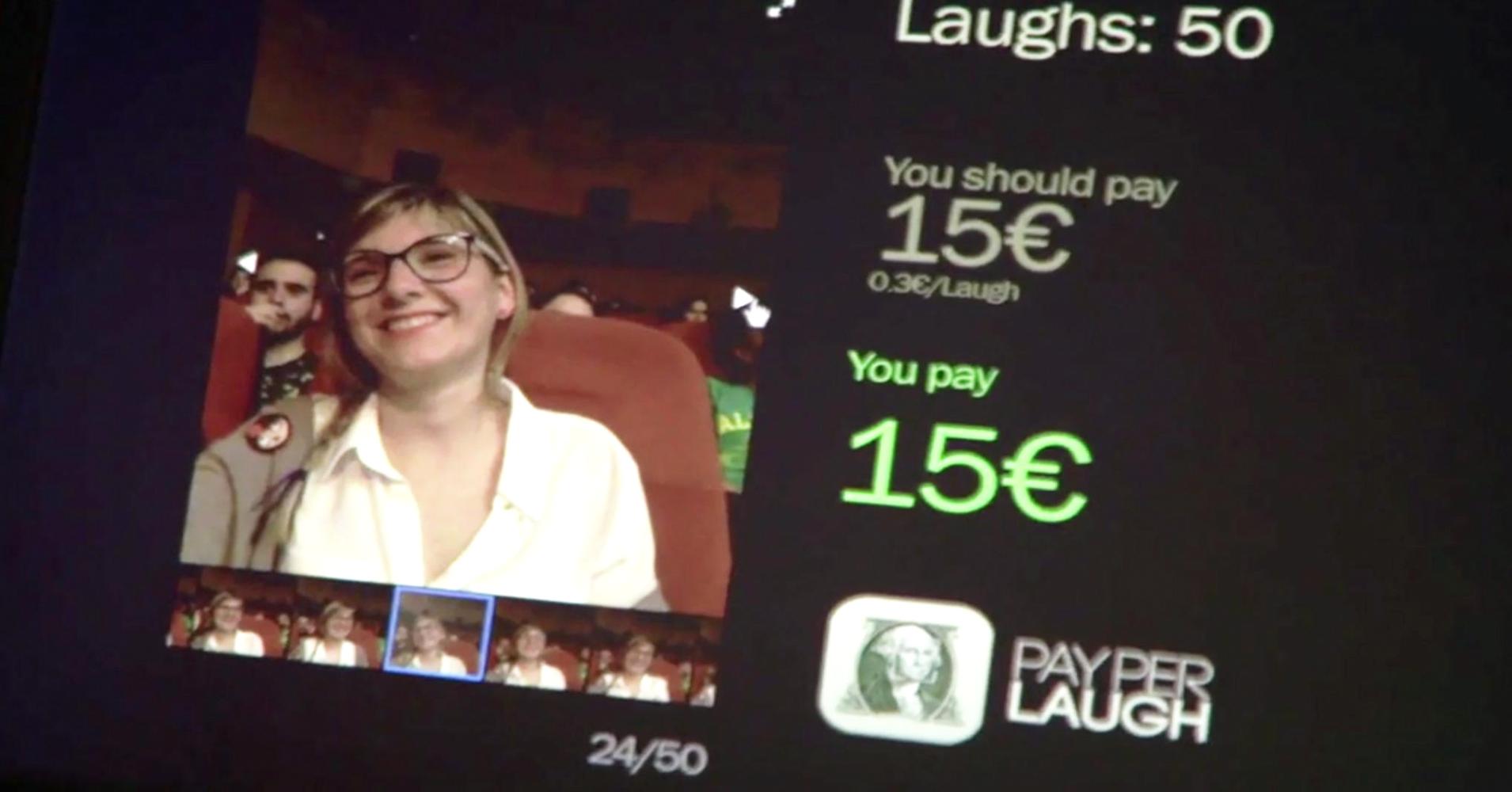If someone asked you how can you help a comedy club with their falling revenues, if you are a data scientist, your approach will be to first understand their clients, demographics, competitions and so on, ingest all of this data into a big data repository and then tweak some standard machine learning models to discover insights right?
While the science of uncovering hidden answers in big data has advanced by leaps and bounds, the traditional approach is still somewhat boxed. I take the example of comedy club because just such a club in Barcelona took a very different approach. The TeatreNew comedy club used facial recognition to charge its patrons 0.30 € each time they laughed during the show.
Despite the possible pun, this ain’t funny at all. Out of all the unlikely business models, this club has evolved into the new Outcome Economy.
Similar waves of business model transformations are happening in other traditional businesses. Solar City offers to not sell you its solar panels, instead they sell you electricity. It does not matter that the electricity comes from the panels on your roof and is heavily instrumented with IoT devices to maintain, monitor and optimize the outcome, revenue from the electricity sale.
John Deere is plowing IoT into farming with unparalleled foresights. They have selectively started offering farming equipment in outcome based model. They are able to do that by leveraging capabilities of connected devices to monitor, maintain, achieve higher efficiencies and track consumption.
If you don’t look close enough, Outcome based business model looks a lot like conversion of product sale into a service sale. However, if you really think about it, what is being sold is the promise of the outcome, even though the outcome comes out of provider’s expertise in their product and services.
A possible idea of buying an outcome is a tire manufacturer selling you 40K miles of driving. An agriculture company, instead of selling tractors and harvesters, sells you a crop yield. As Ted Levitt once said, people don’t really want drills, they want to buy holes.
This business model makes sense from yet another angle, lots of data. Data about customers, their environment, consumption patterns and equipment maintenance can mean a lot to the providers. This unprecedented volume of data has become possible with connected devices, and hides opportunities that can be uncovered by modern big data analytics techniques and help providers understand their customer better and invent the future faster than their competitors.
Of course, the idea is not new but it was simply not feasible for companies to sell outcomes in past. The technological breakthroughs in big data and machine learning, scale and availability of cloud, and IoT devices have all come together to deliver, maintain and measure the outcomes to enable this new economy. Adding fuel to this are the cat and mouse pricing war of cloud vendors such as Amazon and Microsoft, free open source software such as Apache Hadoop, Spark, Storm, Kafka and dirt cheap hardware such as Arduino, Raspberry Pi, and Particle.
It’s time for companies to start taking a hard look at their business models and explore leveraging technology to transform how they sell their products and services. Chances are if they don’t, they will be left behind by the competition.
Ask the club, they are laughing their way to the bank.
Article original published at Pulse.

Average Rating